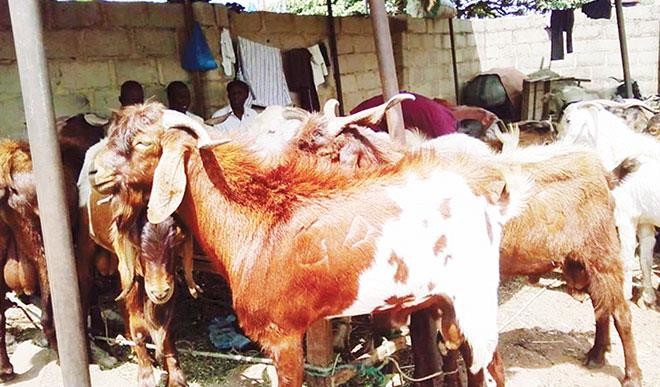Resettle IDPs through goat farming – ABU don
An expert in feed resources and ruminant nutrition in the Department of Animal Science, Ahmadu Bello University (ABU), Zaria, Dr. Suleiman M. Yashim, has called on government at all levels and other relevant stakeholders in the country to consider goat farming while resettling people displaced by insurgency in the North-east. In an interview with Daily […]


An expert in feed resources and ruminant nutrition in the Department of Animal Science, Ahmadu Bello University (ABU), Zaria, Dr. Suleiman M. Yashim, has called on government at all levels and other relevant stakeholders in the country to consider goat farming while resettling people displaced by insurgency in the North-east.
In an interview with Daily Trust at the weekend, Dr. Yashim said the call became necessary because of the prolific way the animals reproduce, saying goats are a class of animals that both women and children would find easy to tend.
The don noted that “if Nigerian government will be able to resettle Internally Displaced Persons giving each family two she and one he goats, it will empower them economically. They will restart their lives and it will help them cope with the trauma they have gone through.’’
Goat production provides ample opportunity for establishing cottage industries based on meat, milk and cheese including hides and skin, Dr. Yashim also said.
“The Red Sokoto has very good leather that commands a high premium in the international market. All other goat skins are equally in demand,” he added. The leather, he said, is used to produce shoes, bags and other leather products.
The don explained that goats take about 12 to 18 months to reach maturity. They are weaned at about six months and the mother goat may immediately take in again. This is because goats are very productive and have high fecundity i.e. can produce twice a year compared to other ruminants, he further said.
Similarly, “goats are very agile and inquisitive and so they are generally better than other ruminants such as sheep and cattle in terms of resistance to diseases, except in terms of outbreak.”
In addition, goats eat a wide range of grasses, leaves, grains, vegetables, tubers among others. They forage freely and could possibly thrive on any edible material, making them the best form of farming the internally displaced people could be resettled with, Dr. Yashim added. Generally, goat meat is widely accepted across ethnic and religious affiliations. It has a relatively low fat content and does not trigger allergic reactions when consumed.
